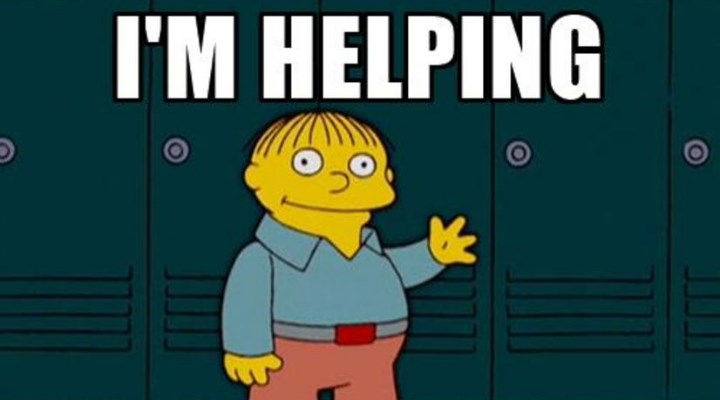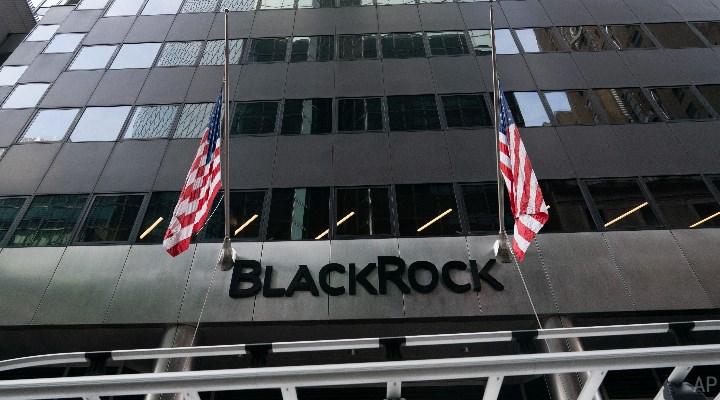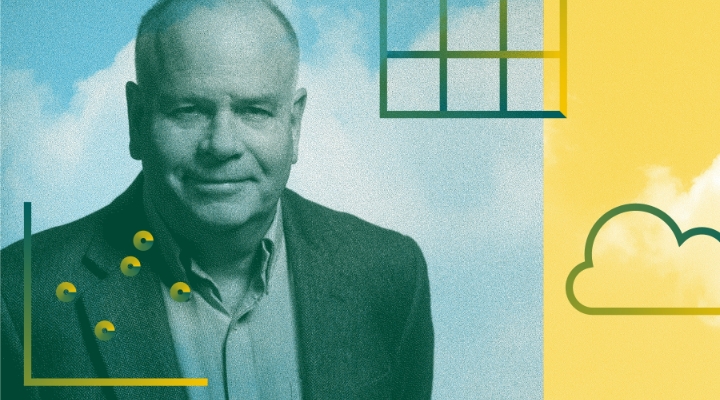
Of all the scourges I encounter at wedding receptions, it's the conspiracy theorist that causes me the most angst.
Desperate not to cause offence to a fellow guest by dismissing their crackpot theories, I have occasionally found myself humouring them instead. What follows is either an excruciating one-way hour-long chat about why Paul McCartney has, in fact, been dead for decades, or a tense game of conversational tennis as I politely but pathetically attempt to change the subject.
If you find yourself in these situations, there is a tool you can use. It's called Hanlon's razor. Put simply, it posits one should never attribute to malice that which is adequately explained by stupidity, and it's a great rule of thumb for deciding whether someone is talking trash.
This is not my way of denying the presence of malice in the world. Quite the contrary. But there are many examples of the cogs of history moving because of incompetence. When the Berlin Wall fell in 1989, it was at least in part the result of a poorly-briefed German Democratic Republic spokesman guessing (out loud, and in front of journalists) that the proposed lifting of the travel ban would be effective “immediately”. Once that unsuspecting cat was out the bag, there was no stopping it.
You will be familiar with other razors. The famous one, Occam’s razor, prioritises explanations with fewer “entities”, while, in the 20th century, the “Sagan Standard” demanded extraordinary claims be proved with extraordinary evidence. You can use those at the wedding reception too. I’ve got a new one of my own though: Wiggum’s razor.
A New Vulnerability
Fans of The Simpsons will know the history better than I do, but decades of great and occasionally tragic moments involving the character Ralph Wiggum have been reduced to a series of memes routinely used to poke fun at situations involving blatant naivety, youthful error, or well-intentioned but ultimately flawed policy. The best one is the “I’m helping” meme (see below).

A glossary definition, then. Wiggum’s razor: that which might otherwise be explained by malice can be explained instead by people trying to help.
Like the proverbial rescue crane toppling into the harbour while trying to retrieve the submerged car (this did actually happen in Galway in 2004, though the photo evidence of a third crane also toppling into the water was faked), humans have a remarkable propensity to make things worse at the very moment they spy an opportunity to assist.
We run this risk with ESG. For several years, ESG has been presented as a moral, regulatory and political issue. The messages have been compelling. No business is sustainable without a planet. Companies can be part of the solution. Capitalism can do better. Investors can win in the process.
Less discussed, however, is ESG as a buyer behavioural issue. Before we look at two examples, though, let’s recap some common behavioural biases:
– Overconfidence bias, where investors are too confident in their own abilities, or disproportionately attribute their success to their own actions;
– Status quo bias, where investors fear change;
– Endowment bias, where investors disproportionately overvalue something they already own;
– Bandwagon bias, where investors adopt positions based on the popularity of a specific approach, or the actions of others;
– Anchoring bias, where investors base their decisions on specific pieces of information, without considering a fuller picture.
You can add another one to that list: hero bias. Hero bias is Wiggum's razor in action. It's where investors with good intentions pile into positions they hope will have a positive impact because it makes them feel better. I am not judging. We are all guilty of occasionally wanting to feel better.
The emphasis here is on the word “told”, for there is no sound analysis of the way the ESG investing industry works without a laser focus on the promises customers are bombarded with about the power of their money to foster positive change.
Nor can there be proper discussion of ESG without the word “vulnerability” either, because humans are vulnerable to any campaign that nudges them with pretty pictures of blossoming trees, windfarms and ethically-sourced tubs of yoghurt. The power is not with the investor here, despite what they are told.
In the world of engagement and divestment, the corporate hand can be a good thing. But where greenwashing is concerned (and there is a lot of that), it is undoubtedly the darker side of the coin. Investors are vulnerable to sleepwalking into these situations simply out of a desire to help. In the process they hand fund undeserving groups an enormous vote of confidence.
For months – years – we have discussed financial vulnerability through the lens of topics like bereavement, economic abuse, financial education, and an resurgent culture of individualisation that hands responsibility for money to consumers who may be too uninformed to create what the financial services industry likes to call “good outcomes”. But ESG has shown our vulnerability to the desire to do good. This affects the buy side in two crucial ways. Let’s examine them.
Who Loses?
For one, you cannot just approach the topic of hero bias from the perspective of “vulnerable” consumers. It also affects the very people working within the world of ESG: the professionals paid to create, populate, manage and market ESG products. Few of would admit to this.
For the record, nor would I force them to. Changing “the system” by placing working professionals in a difficult spot makes me distinctly uncomfortable. It is much better to ask bigger questions of their masters. But it’s even better when the masters themselves step into the spotlight, and one has.
His name is Tariq Fancy, and he is the former sustainability chief investment officer for fund management goliath BlackRock, a company that has amassed massive clout on ESG in mere years. In a confessional essay, Fancy alleges he participated in a lie at the company.
“In my role at BlackRock, I was helping to popularise an idea that the answer to a sustainable future runs through ESG and sustainability and green products, or in other words, that the answer to the market’s failure to serve the long-term public interest is, of course, more market,” he said.
“A bit like the NRA’s traditional answer to mass shootings and related concerns around public safety – the answer is more guns.”

So, faced with profound economic challenges, and a climate crisis that is already causing economic crises of its own, the fund management industry has come up with what it says are solutions. And it just so happens that it has done incredibly well out of them. If one report is to be believed, ESG strategies have led to a 300% leap in additional fund revenues.
For me, a concerned onlooker wondering if Fancy is right (I confess I have not exactly made my mind up), it boils down to this question: is ESG a party, or is it a panacea? From the flow figures and the marketing promises, it often looks very much like the former.
Netflix and Chilling Conclusions
I’ll close with this thought. Like all good Morningstar employees, I have been interrogating the question of whether Netflix is a buy (and spending more time with the cat on the sofa) by watching more Netflix. Specifically, its documentary on the events following 9/11 (I now see why I am approached by conspiracy theorists at wedding receptions).
In one of the piece’s final reflections, an interviewee interrogates the policy of western nationbuilding in the Middle East with the suggestion that fighting for freedom and democracy in faraway lands was a fantasy. In the context of the war on terror, “freedom” meant the freedom to fantasise that good would come of suffering.
From this realpolitik example comes a reminder that wishful thinking and positive fantasies underpin quite a lot of human behaviour. In finance, investors can absolutely tackle them, and their money can still be very powerful. But they have to be aware of them first. It’ll take some honesty to do that. And sometimes, honesty is harder to pull off than any conspiracy.
Ollie Smith is UK Editor at Morningstar











:quality(80)/cloudfront-us-east-1.images.arcpublishing.com/morningstar/6BCTH5O2DVGYHBA4UDPCFNXA7M.png)

















